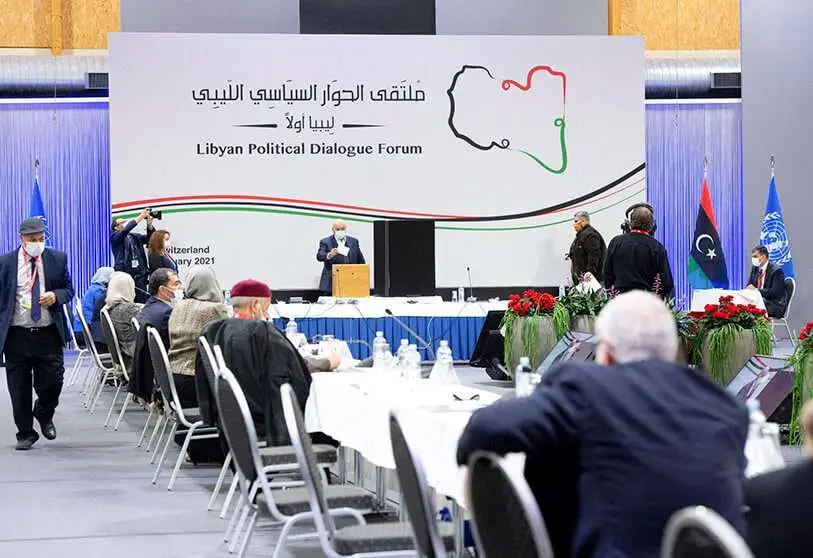Libya calls on the UN to publish corruption report

The Libyan authorities have called for the release of the report, excerpts of which were disclosed on Sunday by the Libyan government and which is still confidential, on allegations of corruption and vote-buying during the inter-Libyan dialogue.
The Presidential Council and Prime Minister Abdul Hamid Dbeibah called in a statement for the publication of the UN Committee of Experts' investigation into allegations of corruption during the Political Dialogue Forum (PDFL).
They reiterated their commitment to fight corruption by all legal means and assured that they will not allow a person involved in corruption to hold positions of responsibility.
Last November the Political Dialogue Forum was launched in Tunisia under the predictions of the UN, which is in charge of the arms embargo and sanctions on Libya. This forum seeks to bring the North African country out of a decade of chaos and a serious political stalemate with two rival authorities in the west and east, as well as to build a unified executive.

The appointment in Geneva in early February of Dbeibah as interim prime minister and Mohamed al-Manfi as head of a three-member Presidential Council composed of 75 Libyan delegates.
According to the UN Committee of Experts, in an annex to a still-confidential report revealed Sunday by the AFP news agency, this process was marred by corruption issues during the first round in Tunis.
This Annex 13, which accompanies the final report of the UN Committee of Experts on the arms embargo and sanctions against Libya, alleges that at least three participants received bribes to vote for the winning list.
According to a diplomatic source, Annex 13 cannot be made public and the report must be formally presented to the 15-member UN Security Council in mid-March.

Before 19 March, Dbeibah must win the confidence of the elected parliament for his government. A parliamentary session focusing on the confidence vote will be held on 8 March, however, Dbeibah has not yet presented the cabinet.
The UN Mission in Libya reacted on Tuesday to the corruption allegations by recalling that the Committee of Experts was independent of it and could not comment on them.








